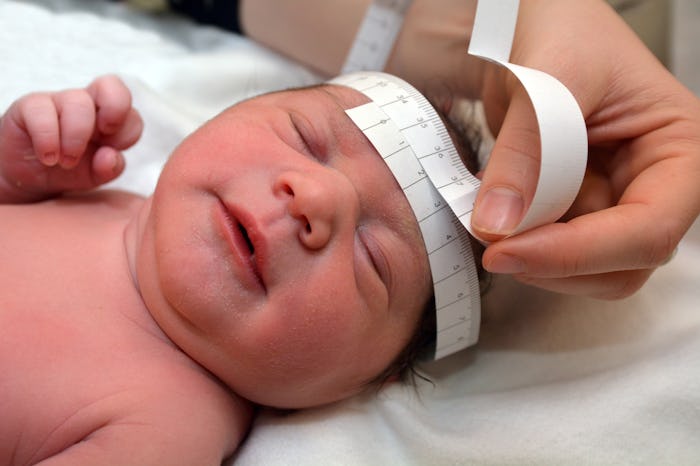Life

Do Big Babies Have More Health Issues?
Once you find out you are pregnant, your primary concern becomes the well being of your baby. (That'll last even after your baby's born, of course.) One of those concerns? Moms often worry about the size of their baby. Around the world, big babies are breaking records with their birth weight, but there is rising concern about the health implications. Do big babies have more health issues?
The average birth weight of a baby is about 7.5 pounds, noted What To Expect, but the weights can range between 5.5 pounds and 10 pounds. According to NBC News, a study published in the Lancet found that there was a 15 to 25 percent increase in babies being born with a birth weight of more than 8 pounds, 13 ounces in the last 20 to 30 years. The study researched birth weights in developed countries, but NBC News noted that in the United States, doctors are more aggressive at catching and preventing any factors that would contribute to larger, unhealthy babies, contributing to a decrease in the big baby trend.
The American College of Obstetricians and Gynecologists (ACOG) explained that babies born over approximately 8 pounds, 13 ounces, are diagnosed with Macrosomia, or "fat" baby syndrome. But all babies are not equal. Some babies may be bigger because of their genetics — factoring in the mom's height and ethnicity — while some may be big because of medical issues like gestational diabetes and maternal obesity.
According to the Mayo Clinic, bigger babies may create complications during a vaginal delivery, especially if the baby is born over 9 pounds, 15 ounces. Vaginally delivering a bigger baby can lead to vaginal tearing, uterine ruptures, or dystocia — when the baby's shoulder gets stuck behind the pubic bone.
Live Science also noted that since big babies are often the result of a mother's gestational diabetes, some babies that are on the "larger" side have low blood sugar and an increased risk of jaundice. Later in life, their size at birth could potentially increase their risk of obesity, diabetes, and metabolic syndrome.
But in the case of bigger babies, "bigger" is a relative term. If you and your partner are both over 6 feet tall, you might have a tall or "bigger" baby, who may be perfectly healthy. But if you are obese, have gestational diabetes, or if the baby has medical issues, then a "bigger" baby may mean there are health risks to consider. In either scenario, the best thing a mom can do is to talk thoroughly with their OB-GYN about any concerns so that the proper precautions or measures can be taken to ensure the baby is born healthy and happy.